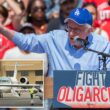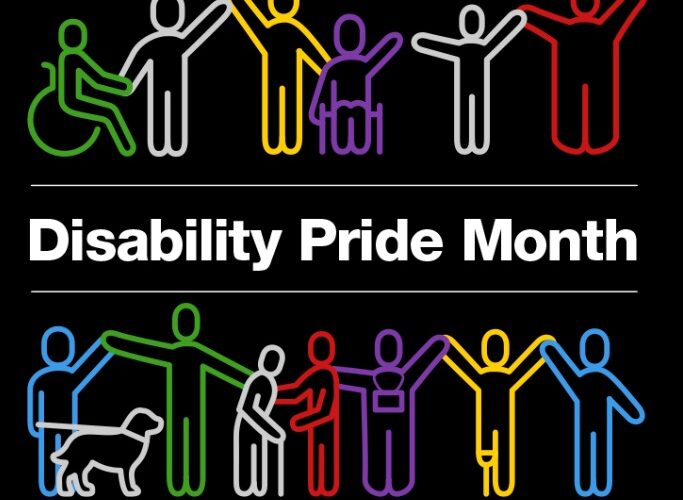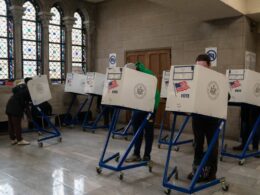As we reflect on the close of Disability Pride Month, the New York City Mayor’s Office for People with Disabilities (MOPD) and the New York City Department of Small Business Services (SBS) are marking the 35th anniversary of the Americans with Disabilities Act (ADA) by recognizing the unique obstacles faced by New Yorkers with disabilities, and how city government is here to help overcome them.
Between Fiscal Years 2024 and 2029, the city is investing more than $10 million in increasing employment services for New Yorkers with disabilities — investments that will make a real, tangible change for those who need it most, following Mayor Adams’ goal of connecting 2,500 New Yorkers with disabilities to jobs by July 2026.
New Yorkers like Travis Adams, for example. Travis has been living with disabilities for years, and even though the ADA has been in place since 1990, Travis was one of the nearly six in ten New Yorkers living with a disability and struggling to find work.
Last year, Travis’s luck changed when he landed a job working as a security guard for The Frick Collection — one of the more than 1,350 jobs the city has connected New Yorkers with disabilities to since the mayor announced his goal in 2023 — after a former job coach recommended him to the city’s NYC: AT WORK program.
NYC: AT WORK is an initiative to connect New Yorkers with disabilities to high quality, locally designed, and effective career services to help them achieve their career and economic goals. Managed by the MOPD and housed at SBS’s Brooklyn Workforce1 Career Center, NYC: AT WORK helps jobseekers with disabilities prepare for and secure meaningful employment.
Since 2023, NYC: AT WORK staff have been embedded in the center’s team of workforce professionals, applying this new model to serving clients and recruiting employers. This partnership expands access for individuals and community partners serving the disabled community.
The program exemplifies the openness and preparation of a comprehensive system to meet specific needs, such as providing individualized benefits counseling by certified professionals, to help clients determine the impact of new earned income on key benefits.
More than 100 jobseekers have received this support over the last year.
NYC: AT WORK is just one of the ways the Adams administration has focused on helping New Yorkers with disabilities access the same opportunities as their able-bodied peers and reflects the city’s longstanding commitment to building a more just and equitable city for everyone. It’s why the city has also advanced a series of initiatives to embed accessibility and inclusion across all areas of government.
We’ve also added specialized staff, enhanced accessibility, and strengthened training for partner organizations SBS Workforce1 Career Centers. And MOPD has expanded its Disability Service Facilitator Program to include every city agency, ensuring accessibility is integrated into agency operations and planning, and ensuring that every city agency has also been tasked with publishing a five-year accessibility plan, shifting the city’s approach from ad hoc compliance to long-term, strategic inclusion.
These services are essential investments in the success of working age individuals with disabilities who are seeking a pathway to work, as well as New Yorkers with disabilities who are employed but seek to work and earn more. Breaking down barriers to achieving these goals is at the core of New York’s approach to ensuring equal access to the dignity of work.
Travis Adams’ reflection on his job experience is the direct outcome of this bold vision: “At the Frick Collection, I am not singled out because of my disability or the fact that I use a motorized wheelchair. I am just like everyone else.”
Because of NYC: AT WORK, Travis has more than just a job — he has a career, and the same opportunities as every able-bodied New Yorker.
Travis also shared his advice with others: “have an open mind, be patient, trust the process, and don’t give up.”
Travis is just one of hundreds of people with disabilities we’ve helped to find work — work that not only pays well, but provides stability, community connections, and the opportunity for growth and economic mobility.
Each story like his is a milestone that honors equality, dignity, and inclusion. And we know this is just the beginning. New York thrives when everyone can contribute their talents. Together, we’re working to build a future where disability is no longer a barrier to opportunity.
Gross is the commissioner of the New York City Department of Small Business Services. Curry is the executive director of the Mayor’s Office for People with Disabilities.








